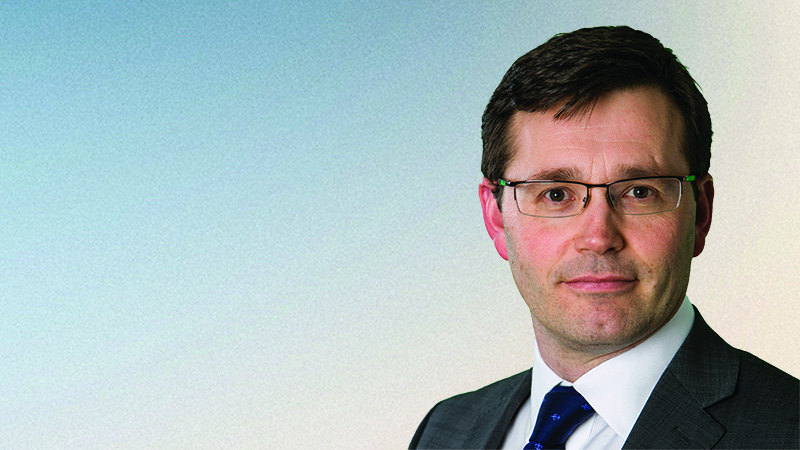Investors in the Rights and Issues investment trust (RIII) “should be increasingly optimistic” about its future prospects, according to the research team at QuotedData, following a 33% total return over the last year and its “stable” continuity plans following Dan Nickols’ (pictured) retirement in July.
RIII, which is benchmarked against the FTSE All Share but invests predominantly in UK mid and small caps, has struggled over the last three years given the previous unfavourability of British smaller companies. According to AIC data, the trust returned only 2.3% over the period, although this is a significant outperformance of its sector average, which is down 13% over the same time frame.
Now, with improved economic prospects for the UK, and a succession plan decision which was made with “continuity front and centre”, QuotedData said the outlook for the trust appears “much brighter now”.
See also: Dan Nickols to retire: Will it be ‘business as usual’ for investors?
“This positivity is reflected in the recent performance of the trust, which is up 33% over the past 12 months thanks to strong growth across the portfolio, the expectation of falling interest rates, and refreshed optimism around the UK’s political stability,” the team explained.
“Against this backdrop, the retirement of co-manager Dan Nickols (pictured) was announced. At the beginning of July, co-manager Matt Cable took on a lead manager role, supported by Tim Service (head of Jupiter’s SMID team). The decision was made with continuity front and centre and reflects the more stable environment that the trust now finds itself in, having successfully navigated the challenges of the past few years.
“Reflecting the return to form, RIII investors should be increasingly optimistic about the trajectory of the fund going forward.”
Half-year results
QuotedData’s research note comes two weeks after RIII’s half-year results were published, with its board announcing a NAV total return of 13.2% to 30 June and total shareholder returns amounting to 15.8%. This is double the return of its FTSE All-Share benchmark, which is up 7.4% in total return terms over the period. The trust’s strong performance was reflected in its narrowing discount, which moved from 11.2% at the start of the year to 8.2% at the end of June.
Since then, however, its discount has widened out again to 10.45%, according to AIC data.
The half-year period discussed in RIII’s results marked the very final period of Nickols serving as co-manager, with Cable officially taking over the helm on the following day.
QuotedData said Nickols’ retirement ended “a successful tenure”, and that he and Cable were able to “refine the RIII portfolio while navigating an increasingly volatile economic backdrop” over the period.
“With Matt now assuming the lead manager role, the transition is about as seamless as one could possibly hope,” the research team said. “Investors should be comfortable that it remains business as usual.
“Dan’s departure came during a period of strong performance and portfolio stability. This follows a period of heightened turnover as the Jupiter Asset Management team, which took over the trust in October 2022, adjusted the RIII fund to better reflect its own investment views and improve the resilience of the portfolio.
“Matt [Cable] notes that, thanks to the work done over the last 18-24 months, the portfolio is now in good shape, and he is optimistic about what is to come for RIII and the opportunity that exists across the UK small and mid-cap sector.”
Challenging backdrop
QuotedData said the trust’s strong performance is no mean feat, especially given the recent dominance of the US market relative to unloved UK equities.
It pointed out that this performance divergence has been even more drastic for UK small caps, which are perceived to be more economically sensitive than their larger-cap counterparts.
“Promisingly, in recent months, we have appeared to reach somewhat of an inflection point in sentiment,” the research team continued. “It remains early days; however, expectations for GDP have more than doubled since the beginning of the year, lifting the economy that had been flirting with recession, while strong wage growth, low unemployment, and falling inflation set the stage for further gains.
“The recent election, which handed a landslide to the new Labour government, has also added a sense of optimism that has long been absent. Its strong majority stands in contrast to the political landscape across Europe and the US, setting the foundations for a more stable policy backdrop. This is expected to help drive capital back to the UK, as might a new, more open, relationship with the EU.”











